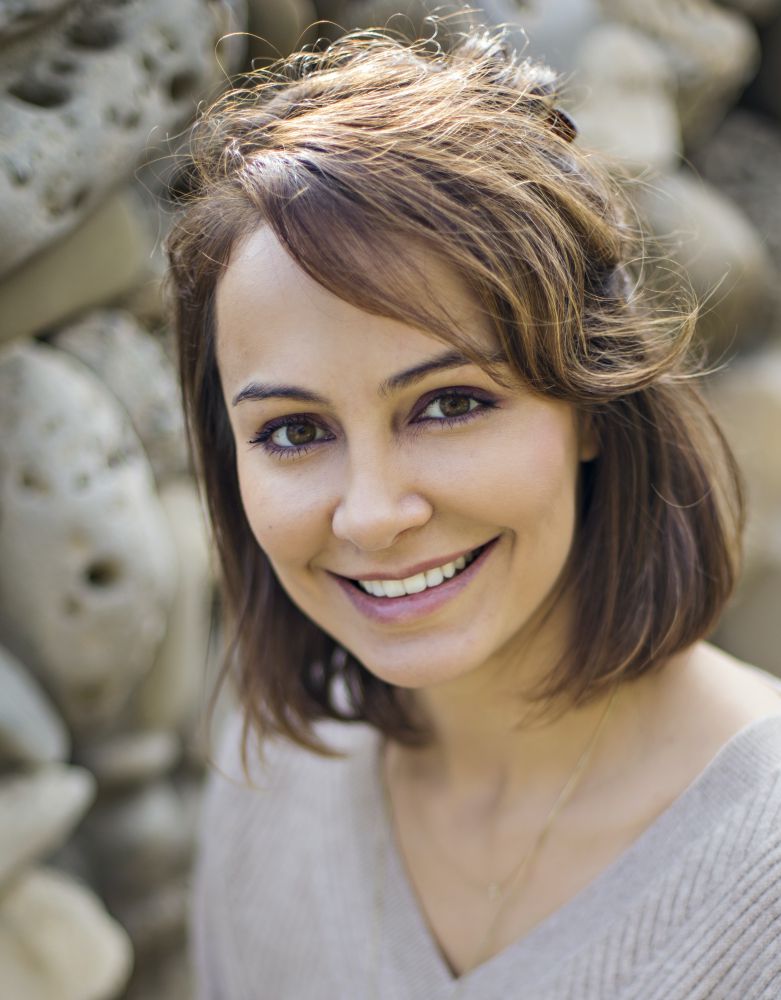
A Positive Experience

Even in good times college is stressful. Add a pandemic, remote classes, economic uncertainty, social unrest, a crucial presidential election and an opaque future and you have the ingredients for an epic psychic beatdown.
Smaranda Lawrie, a graduate student in UC Santa Barbara’s Department of Psychological and Brain Sciences, saw it firsthand as a teaching assistant when the COVID-19 pandemic began upending her students’ lives.
“As I got to know students better,” she said, “and we had more and more discussions about what was going on around us, I increasingly came to realize that students were really struggling to stay happy, healthy and optimistic in the face of everything going on.”
Determined to find ways to help, Lawrie teamed with Samantha Blodgett, a fourth-year double major in psychological and brain sciences and in communication, to develop the UCSB Resilience Summit and Certificate Program, a series of lectures in “positive psychology” designed to instill the skills for maintaining good mental health, optimism and resilience in tough times.
Each of the 12 seminars will be held Wednesdays from 12:15 to 1:15 p.m. on Zoom. They are open to UCSB students, faculty and staff. Register here. The first, “Positive Psychology and the Science of Thriving,” will be presented by Lawrie Nov. 4.
Participants who attend a minimum of eight out of the 12 talks and complete the associated assignments will earn a CV-worthy certificate in the Science and Practice of Resilience.
Lawrie’s seminar on positive psychology is the logical extension of her work in the classroom. After teaching a class on the subject at Westmont College, she incorporated it into her TA section for an Advanced Experimental Social Psychology class at UCSB. At the beginning of each section she began with an exercise in which students wrote down two or three good things that happened to them in the prior 24 hours. Then a few students shared with the class.
“This simple activity takes only a couple of minutes,” she said, “but it sets the tone for a positive learning environment and, over the course of a few months, it teaches students to notice the good in their lives and helps them develop more optimistic thinking.
“The past two decades of rigorous empirical research in the field of positive psychology has found that skills that increase well-being and related factors such as resilience, positive emotions, engagement and meaning can be taught in parallel to academic material,” Lawrie continued. “Moreover, rather than lowering students’ achievements by diverting time away from academic subjects, positive education activities and well-being interventions contribute to academic achievement.”
By the end of the quarter, she said, several students were asking for more positive psychology activities. To bring the work to a bigger audience, she partnered with Blodgett to create the series.
“The goal of the summit and certificate program is to cultivate students’ resilience for this moment and provide them valuable skills and tools to help them thrive for the rest of their lives,” Lawrie said. “These interdisciplinary sessions will cover a variety of concepts from the basics of positive psychology, to utilizing mindfulness, to dealing with imposter syndrome. This program was designed for the current crises the country is facing so it will also discuss the importance of relationships in times of need, growth after periods of struggle and trauma, as well as racism and implicit bias.”
The seminars, moderated by Lawrie and Blodgett, will be led by a distinguished group of scholars and experts. Some will lecture, others will run workshop-style sessions or lead Q&As.
“What unites all the lectures is that speakers will be talking about their topics from an empirical/scientific perspective,” Lawrie said. “At the same time, speakers have also been instructed to make the lectures more enjoyable and relatable than a traditional academic class. They have also been encouraged to share some personal stories and tie the material to the current state of world affairs.”
Here’s the seminar schedule and speakers:
Nov. 4 “Positive Psychology and the Science of Thriving” with Smaranda Ioana Lawrie
Nov. 18 “Staying Steady Amidst the Storm: The How and Why Behind Mindful Attention Training” with Alissa Mrazek
Dec. 2 “Resilience Is More than Just a One-Person Job” with Maryam Kia Keating
Dec. 9 “Overcoming Imposter Syndrome” with Adia Gooden
Jan. 13 “Applying Campbell’s Hero’s Journey or Finding Your Inner Hero” with Angelo Santinelli
Jan. 20 “Monitoring California Students Complete Mental Wellness” with Mike Furlong
Jan. 27 “Redemption: Finding the Silver Lining in Life’s Negative Events” with Nicole Alea Albada
Feb. 3 “Supporting At-Promise Students” with Rebeca Mireles-Rios and Victor Rios
Feb. 10 “Let’s Talk about Posttraumatic Growth” with Natalia Jaramillo
Feb. 17 Documentary: “My Year of Living Mindfully” with Shannon Harvey
Feb. 24 “My Year of Living Mindfully: A Health Journalist’s Deep Dive into the Science of Mindfulness and the Role it Could Play in the Mental Health Epidemic” with Shannon Harvey
March 3 “Breaking the Bias Habit: How to Disrupt the Effects of Implicit Bias on Behavior and Outcomes” with Carmel Saad
March 10 “Stronger Together: How Relationships Help us Thrive During Good Times and Bad Times” with Nancy Collins
Lawrie said the seminars wouldn’t have been possible without the support of the Psychological and Brain Sciences faculty and staff, especially department chair Mike Miller and student affairs manager Chris McFerron. She also expressed particular gratitude to her advisors, Heejung Kim and Karen Nylund-Gibson as well as mentors Nicole Albada and Vanessa Woods.



